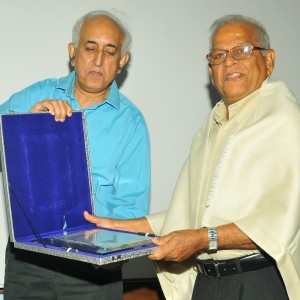Prof. K.S.N. Iyer
The roles of "scientists", and their predecessors before the emergence of modern scientific disciplines, have evolved considerably over time. Scientists of different eras (and before them, natural philosophers, mathematicians, natural historians, natural theologians, engineers, and others who contributed to the development of science) have had widely different places in society, and the social norms, ethical values, and epistemic virtues associated with scientists—and expected of them—have changed over time as well. Accordingly, many different historical figures can be identified as early scientists, depending on which characteristics of modern science are taken to be essential.
Some historians point to the Scientific Revolution that began in 16th century as the period when science in a recognizably modern form developed. It was not until the 19th century that sufficient socioeconomic changes had occurred for scientists to emerge as a major profession.
The roles of "scientists", and their predecessors before the emergence of modern scientific disciplines, have evolved considerably over time. Scientists of different eras (and before them, natural philosophers, mathematicians, natural historians, natural theologians, engineers, and others who contributed to the development of science) have had widely different places in society, and the social norms, ethical values, and epistemic virtues associated with scientists—and expected of them—have changed over time as well. Accordingly, many different historical figures can be identified as early scientists, depending on which characteristics of modern science are taken to be essential.
Some historians point to the Scientific Revolution that began in 16th century as the period when science in a recognizably modern form developed. It was not until the 19th century that sufficient socioeconomic changes had occurred for scientists to emerge as a major profession.[

